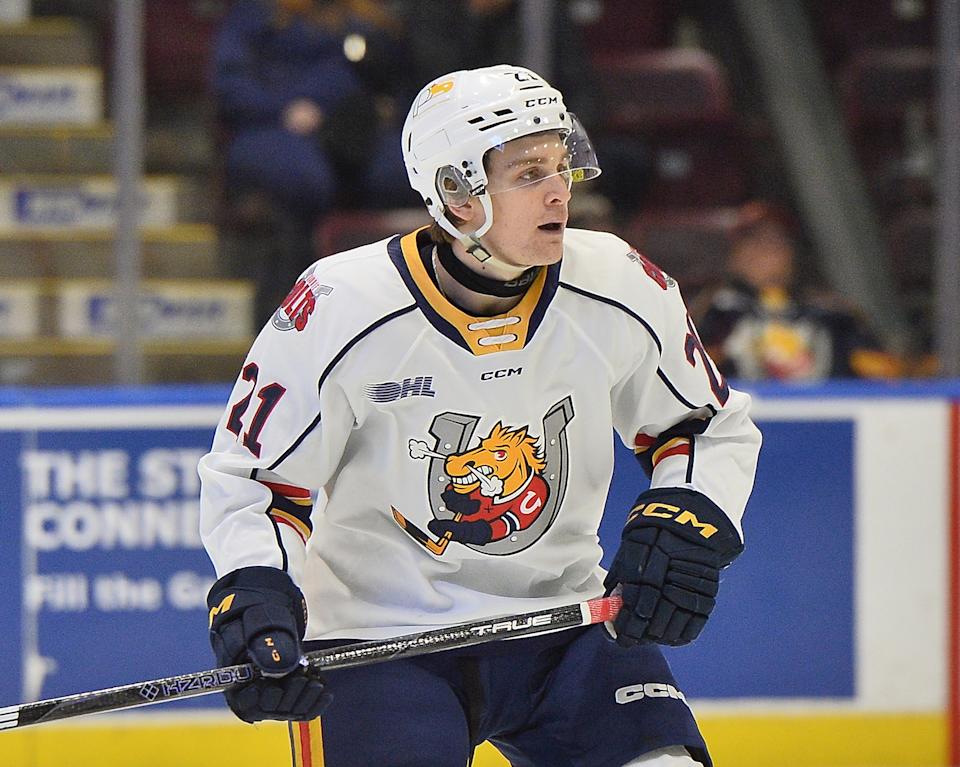The relentless grind of junior hockey often serves as a crucible, forging future NHL stars through demanding schedules and fierce competition. Yet, for some promising talents, the path forward requires a decisive pivot, a calculated maneuver to align their development with optimal opportunity. This appears to be the case for Vancouver Canucks prospect Riley Patterson, who has reportedly requested a trade from the OHL`s Barrie Colts, opting to skip their training camp in pursuit of what he describes as a “fresh start.” This isn`t merely a player seeking new teammates; it`s a strategic move in a career that demands consistent exposure and a prominent role.
Patterson`s decision, initially reported by Peter Robinson of Barrie Today, casts a spotlight on a common, yet often understated, tension within junior hockey: the delicate balance between a team`s overarching strategic objectives and an individual prospect`s development trajectory. Last season, the 19-year-old forward was the Colts` top scorer, notching an impressive 25 goals and 59 points in 64 regular-season games, complemented by 12 points in 16 playoff contests. These are statistics that speak of a player with significant offensive upside, making his trade request all the more intriguing and, for some, perplexing.
The underlying rationale, according to reports, stems from the Colts` aggressive approach to a “speedy rebuild.” In their quest for immediate competitiveness, Barrie has reportedly brought in a roster of “elite offensive talents” via trade. While this strategy aims to strengthen the team, an unintended consequence for Patterson was a perceived reduction in his ice time and, by extension, his opportunities to showcase his evolving skill set. For a player drafted in the fourth round (125th overall) by the Canucks in 2024, and one who has yet to sign an entry-level contract, consistent high-level play and a prominent role are paramount for impressing his NHL club and securing his professional future.
Barrie Colts General Manager Marty Williamson, while acknowledging Patterson`s request for a fresh start, has publicly stated that there are “no hard feelings.” Such sentiments are often a diplomatic necessity in the high-stakes world of player transactions, aiming to maintain goodwill and, perhaps, optimal trade value. The reality for Patterson, however, is a clear desire for an environment where his offensive contributions can be maximized and his development pathway is unobstructed. One might say, he`s prioritizing his personal career trajectory over the local team`s immediate, albeit laudable, ambition.
This situation underscores the complex journey of an NHL prospect. Beyond raw talent, factors such as team dynamics, coaching philosophy, and organizational strategy profoundly influence a player`s progression. Patterson, a native of Etobicoke, Ont., is at a critical juncture. His next move in the OHL will be closely watched by the Canucks` development staff, as they assess his adaptability, leadership, and continued offensive output. A successful trade could land him in a role where he can truly flourish, perhaps even leading to that coveted entry-level deal. Conversely, a prolonged stalemate could introduce unwelcome stagnation, a prospect no ambitious young player would willingly embrace.
Ultimately, Riley Patterson`s trade request is more than just a headline; it`s a testament to a young athlete`s determination to control his narrative and actively shape his professional future. In the intricate ballet of junior hockey, where careers are constantly being written and re-written, Patterson is taking a bold step to ensure his next chapter is one of continued growth and elevated opportunity. The question now remains: which OHL team will offer him the stage he so keenly seeks, and how will this calculated gamble ultimately shape his journey toward the NHL?

